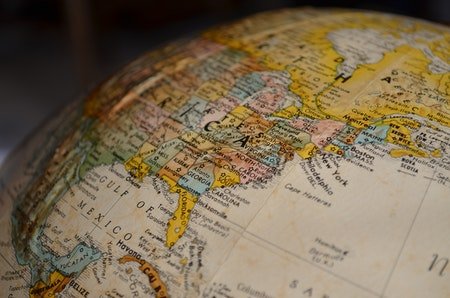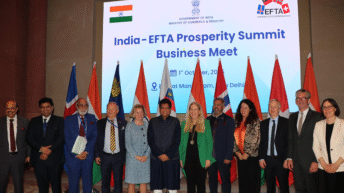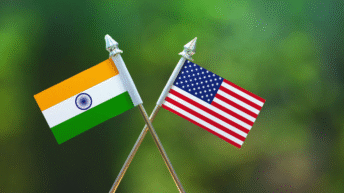
Concepts are born out of physical perceptions and language itself is an abstract interface with the world of sensorial experience. A country is a more or less defined physical landscape; originally and over the centuries the word was applied to a physical and cultural entity, whether or not it had an autonomous administration. The nation initially used to refer to an ethnic or tribal group as a family of families, gradually acquired a political significance. A nation or cluster of nations under one rule was described as an ‘imperium’ or empire in Latin. The modern nations, except for some of the smaller ones, are comprised of several more ancient nations that were federated and unified over time just as the countries that today compose the United Nations are made up of many local ‘countries’, in the etymological sense that survives in the French ‘contrée’ and Spanish ‘contrada’.
Until recently most political states were described as consisting of several nations and countries. Spain still describes itself as a cluster of various nations and so does the Russian Federation (or almost a hundred ‘nationalities’) whereas Germany is a ‘Bund’ (a league) of ‘lander’ that existed for centuries as princely and city-states while the USA and Canada recognize the existence of several indigenous nations within their territories. Even small Nepal was formed out of twenty four earlier small states.
This brief etymological retrospective tells us that, just like the Indic words ‘rashtra, ‘rajya’, ‘janapada’, ‘desha’, and ‘varta’ the definitions of national entities have evolved with time to reflect changing political realities and concepts. Many nations, such as France or Portugal, were politically brought together by one person or a dynasty as a result of external and internal factors and circumstances. The foundational myths on which most of them base their existence are cultural archetypes that unite a population by fostering a sense of belonging and solidarity within a collective identity. Empires are formed in the same way and the strength of their founding myths and institutions tend to determine their ability to endure. Whereas some empires, such as Alexander’s, Charlemagne’s, Napoleon’s or Hitler’s were far more ephemeral than the relatively resilient ‘Italic’ Roman Empire of Antiquity or the Persian Achaemenid one, the ‘Holy German Empire’, though generally weak and contested, survived for centuries, at least as a symbol of a common continental heritage and identity. The Russian Empire, an heir to both the Byzantine and Mongol realms, forged a Eurasian construct that survived the Bolshevik Revolution and the Nazi invasion in the form of the USSR. Even the dismantlement of the USSR could not fully deconstruct the ‘Russky Mir’ as the current war in Ukraine demonstrates.
Indeed, any nation can be broken apart by separatist local nationalistic impulses. Many countries today face risks of dissolution and the cases of the United Kingdom, Spain, and Belgium come to mind. The latter, known for centuries as the Spanish Low Countries owes its modern sovereignty to a compromise between Great Britain and France that guaranteed its neutrality. We know what happened to young nations like Yugoslavia, Czechoslovakia, Sudan, Armenia, and Georgia which had broken away from earlier empires. The prognosis for some others, including Israel and Pakistan is uncertain because they were created based on religion fairly recently and are under tremendous stress due to internal, greater regional, and historical factors: Pakistan because of its ethnic divisions which make it very vulnerable to its neighbours: India, Afghanistan and Iran, and Israel because of its heterogeneous population, embedded as it is in the Arab and Muslim world in which Iraq, Jordan, and Saudi Arabia among others emerged as states out of geopolitical agreements in the last century; Turkey has not been quite successful in its endeavour to forge a national ethno-cultural compact after losing its multi-national empire.
National unity is also a matter of common interests and prosperity. When the former are in question and the latter declines fissiparous tendencies express sentiments of alienation that revive old rancours or jealousies. ‘Recreated’ countries like Ukraine,- a jigsaw puzzle of ancient Russian, Polish, Turkish, Hungarian, and Moldavian territories cobbled together by Lenin, Stalin, and Khrushchev – can be viewed as geopolitical chimeras revived by great powers to serve their larger interests. The attempt made by the current Ukrainian ruling groups to reinvent a language partly out of the West-Russian dialect that was the lingua franca bears witness to the difficulty of distancing a region from a wider ethnolinguistic and religious family for political motives, even though a more or less fragile ‘political nation’ can be conjured up in a matter of days as happened to Kosovo, Bosnia or Slovenia by the will of NATO. We just have to think of most African States created by the colonial powers who carved up vast multi-tribal territories and thereby administratively clustered several diverse populations within the borders of those new entities. Similar considerations apply to Pakistan, built around a part of Punjab, and to Bangladesh (the Muslim-majority area of greater Bengal), not to mention Indonesia which is a collection of archipelagos, under historical Javanese and Sumatran influence, that was consolidated as a nation by the Dutch colonisers.
These examples tell us that historical narratives founded on geographic vicinity and preponderant cultural notions constitute the cement that bind political entities together, whether we call them nations, states or empires. Conversely, all of them are vulnerable to corrosive influences if local differences and claims of distinct national identity are brought up, since even the smallest regions, provinces, fiefdoms or even cities can argue that they are entitled to national sovereignty, as happened in many ‘countries’ including medieval Germany and Italy or more recently, in the Austro-Hungarian empire.
The European Union is a halfway house in the process of creating a new nation out of the habitually conflicting states of the subcontinent. So far, most of its inhabitants don’t really feel European in cultural and political terms, despite all the bureaucratic attempts to convince them that they belong to the same ‘community of values’. It will be interesting to see whether time will eventually bring forth a European federal nation or rather a new empire, or whether nationalist rivalries will break the half-baked Union apart. One of the problems with such political projects is that they rely either on an ideology (like Napoleon’s empire, the USA, and the Soviet Union) or on an ideal model of society such as Hindutva, the Ottoman Millet Nizam, or a divine right monarchy on the lines of the former German, Austrian, British or Russian Empires where power was exercised in the name of God according to a common tradition. Born as an economic association, the EU has become aggressively ideological, and therefore increasingly unwilling to tolerate political views that diverge from its model for a secular liberal global market built on the primacy of the individual and dominated by the ‘Atlantic’ West. Conversely, its bureaucracy gradually smothers democracy. The EU machinery is enforcing its member-states compliance with requirements of wokeness and conformity that include shunning nationalism, religion, and traditional values as well as following the USA in all important respects. One consequence is that the EU ‘federal’ authorities are in continuous conflict not only with outside dissenters (the case of Russia is an extreme example but Turkey, China, African nations, and even India are not far behind) but also with a rising number of its member-states including but not limited to Hungary, Slovakia, Poland and Italy.
One lesson to be learned from history and present circumstances is that nations and would-be nations are ‘nested holons’ to borrow a term from Systems Science. Being partly organic entities and partly political constructs they cannot rely on ideologies to survive and prosper because all ideologies eventually change or decay. Common ideals and cultural/spiritual legacies that may cut across religious denominations are the most enduring cement for nations that have built sovereign states for themselves or have come together with other regional nationalities to form larger country-states. Ukraine for one failed to create a viable political identity after the ruling regime tried to deny the fundamental Russian component of its culture. The pro-Atlantic ideology of its West-sponsored new rulers, harking back to an era of fictitious Ukrainian ethnic purity, could not replace the wider ancestral Slavic heritage and brought disaster to the region.






Add comment